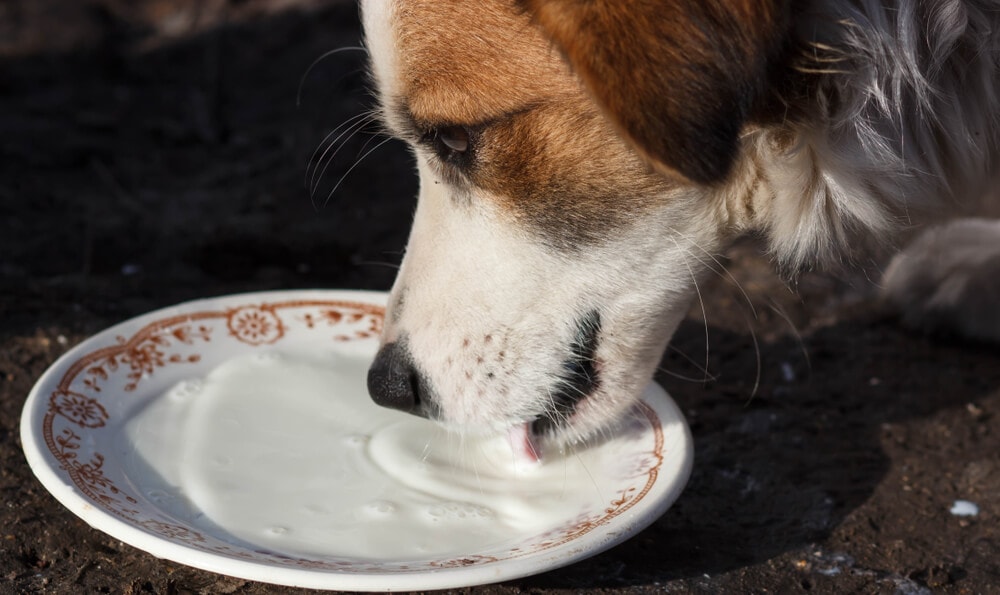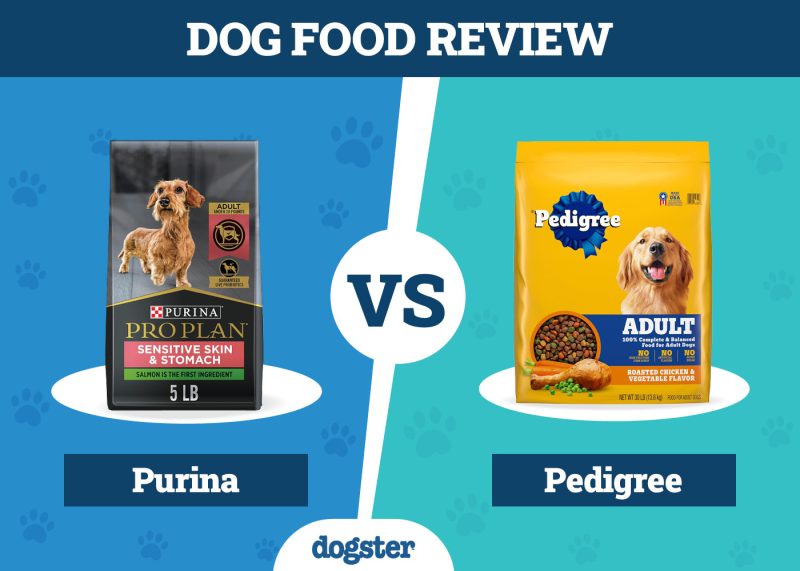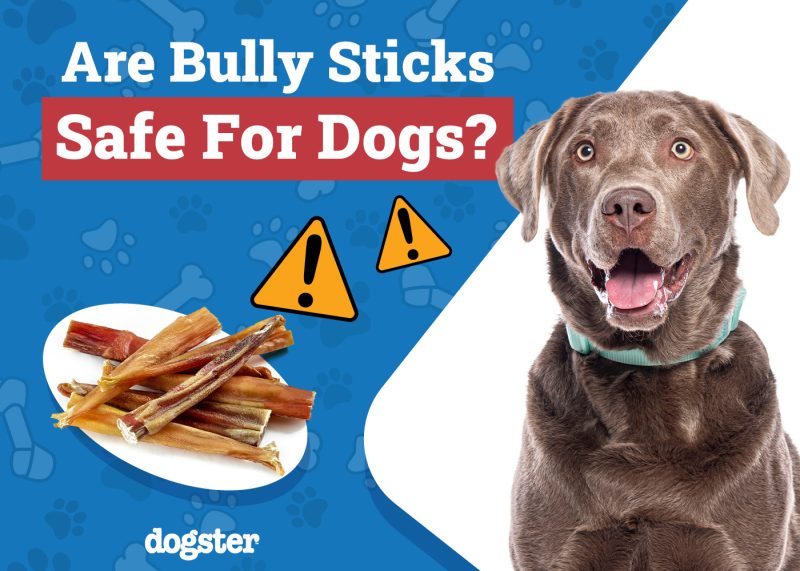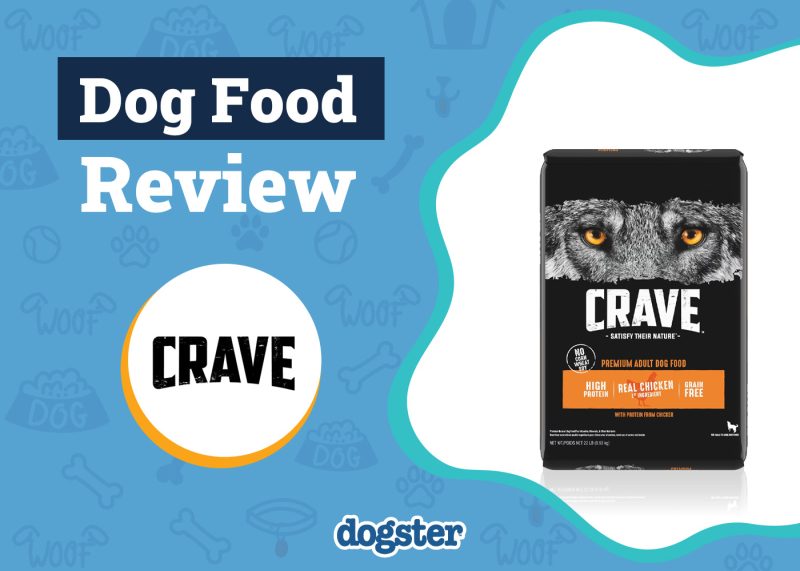In this article
Many dogs are always looking to share whatever foods you happen to be eating at meal or snack time. Whether it’s a sandwich, a cupcake, or even a glass of milk, they always seem to be there to pick up the crumbs or dribbles. We know that human food scraps aren’t ideal, but can dogs drink milk?
The answer is that while some dogs can enjoy a small amount of milk as a treat, others are lactose intolerant and will get an upset stomach after drinking it. In addition, some dogs are allergic to all dairy products including milk. Here, we dive deeper and discuss why you should be cautious about giving your dog milk to drink.

When Is It Not Okay for Dogs to Drink Milk?
Milk is a delicious treat for some dogs, but not all can digest the lactose in milk properly. When they’re puppies, canines (and other mammals, such as cats) produce an enzyme called lactase, which helps the body break down the lactose in the milk from their mother so they can properly digest it without problems. As dogs age, many produce less and less lactase until they can no longer digest dairy properly. So, the lactose sits in the gut and ferments, which can cause problems like cramping and diarrhea.
- Loose stools
- Abdominal discomfort
- Vomiting
- Gas
Any dog that displays the signs of lactose intolerance after drinking milk should avoid dairy products in the future.
Additionally, some dogs are allergic to dairy. Allergies can cause a broader range of signs, often leading to itchy skin as well as gastrointestinal signs.
Milk is also high in fat and sugar, meaning too much can cause unnecessary weight gain and even obesity as time goes on. Dogs that are already overweight or obese should usually avoid milk entirely.
If you need to speak with a vet but can't get to one, head over to PangoVet. It's our online service where you can talk to a vet online and get the advice you need for your pet — all at an affordable price!
What Are the Nutritional Benefits of Milk for Dogs?
Milk does contain nutrients that are beneficial to dogs, including protein, vitamin A, potassium, and calcium. However, the food that they eat during mealtimes should contain all these nutrients in the proper amounts necessary for good health. So, dogs don’t need nutrients from other sources like milk. That said, a small amount of milk (a couple of tablespoons) as an occasional treat isn’t likely to be harmful to a non-allergic dog that is not lactose intolerant or overweight.
Dogs Should Only Drink Milk in Moderation
Even if it turns out that your dog can handle the consumption of milk, they shouldn’t be drinking a bowl of it daily. Milk should be regarded as an occasional treat or snack, as should anything else that is not a part of your dog’s regular diet. Treats in general should account for no more than 10% of their daily calorie intake. Commercial and veterinarian-approved homemade diets are designed to provide a dog with all the nutrients that they require in the necessary amounts for good health and a happy life.

Can Dogs Drink Goat’s Milk?
Goat’s milk is mammalian, so it still contains lactose like cow’s milk does even though the amount of lactose is less. Therefore, it can also cause problems for dogs that are lactose intolerant. It is also high in fat, so it can contribute to weight issues just like cow’s milk can.
- Completely avoid serving dairy to your dog if they are lactose intolerant, have dairy allergies or if weight gain is a concern.
- Even if those concerns do not apply to your dog, only offer dairy in moderation.
Some people claim that there are benefits of giving goat’s milk to dogs, but currently no peer-reviewed studies have been done to prove or disprove any said benefits. If you think that goat’s milk may benefit your dog in some way, consult with your veterinarian first for expert advice and guidance.

Final Thoughts
Milk is not the best nutritional option for dogs when it comes to what they should eat and drink on a regular basis. Some dogs can handle a small amount of milk as a treat or occasional snack, but many canines are lactose intolerant and will have problems like gas and diarrhea if they indulge in even just a few licks of milk, and others have dairy allergies. Between the reaction that your dog has to dairy and your veterinarian’s advice, you should be able to determine whether milk should be avoided altogether or only offered once in a while.
See Also:
- Can Dogs Eat Agave? Vet-Reviewed Facts & FAQ
- My Puppy Still Has Worms After Deworming: Our Vet Explains
- Can Dogs Eat Whipped Cream? Vet-Reviewed Nutrition Facts & Info
Featured Image Credit: Ha11ok, Pixabay






















